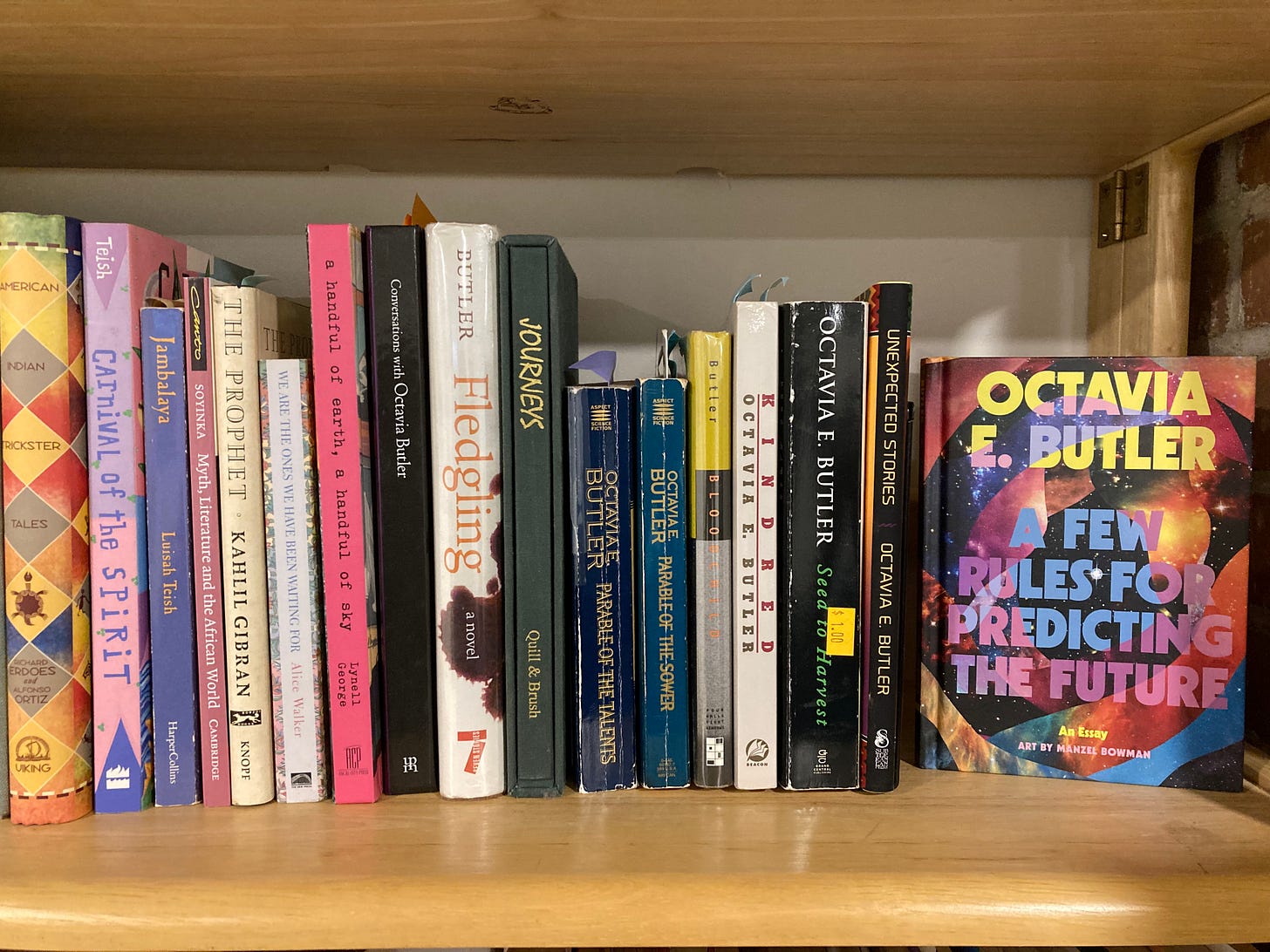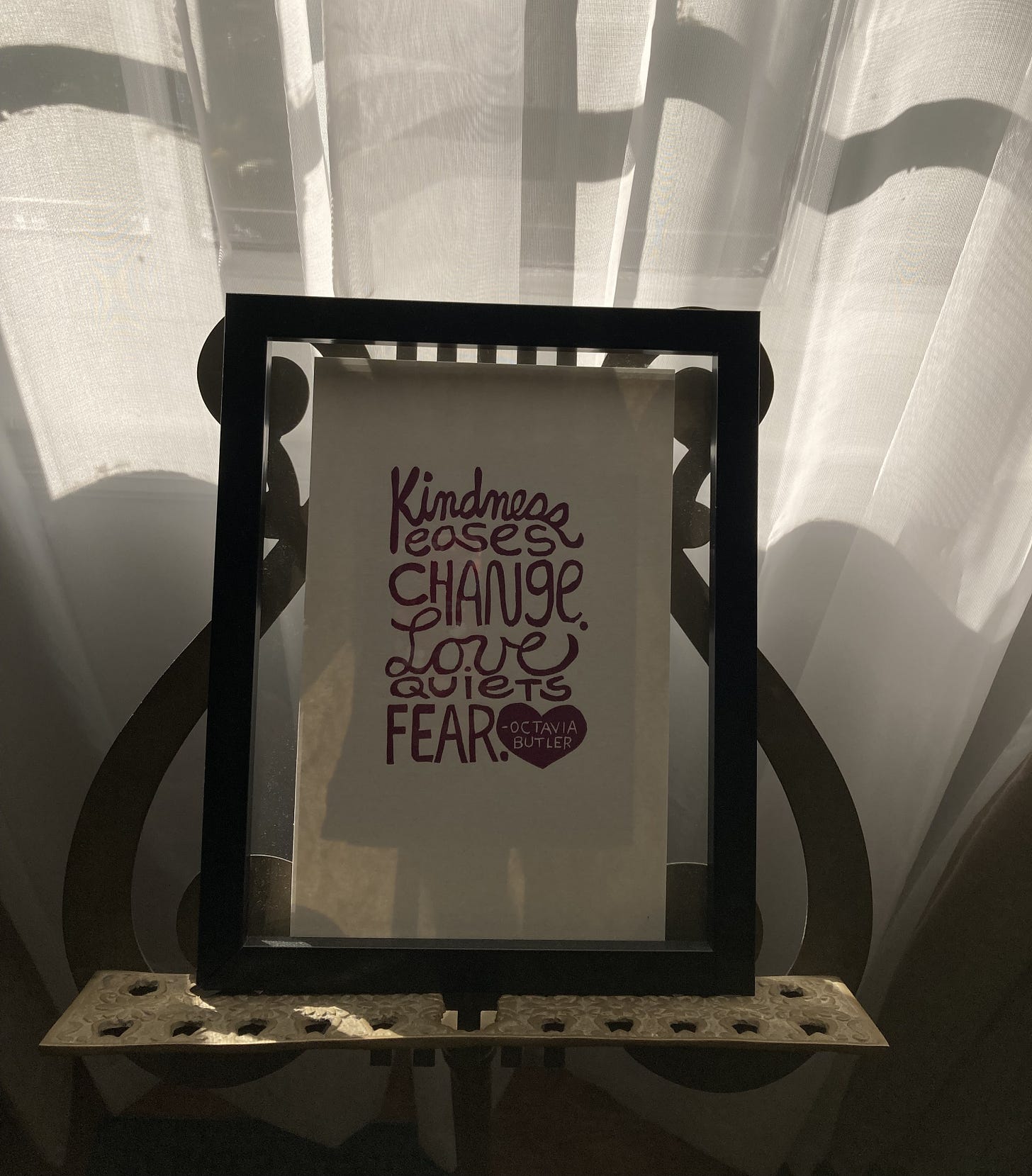I have been reaching out to people I’m close with, sharing feelings of sadness, shock, confusion, and loss. It has helped me to know I am not alone, so I’m rushing out a Carrying Capacity post in case you need a reminder, too.
I couldn’t watch the coverage on election night. I went to bed early, but disturbing dreams splintered my sleep. I remember a scene with a scrawny cat living in piles of its own waste, and a scene of newspapers rolling off a press with only Trump’s face on the front page. When I woke up at 6am, I already knew. I reached for my phone and scrolled to find The New York Times headline: “Trump Storms Back.” As I desperately scanned one publication after another, my heart dropped to lodge in my stomach. I could not believe the reports. An Electoral College shutout. A popular vote slam-dunk. The blue wall, crashed. The senate, gone. A clear majority of Americans had cast their votes for a man with no discernible moral code, who had displayed astonishing depths of disrespect for women, broken the law multiple times, encouraged an attack on our Capitol, and flooded our culture with cruelty.
I felt sick at heart, lost in my own homeland, and I still do. But today I realized, while reading the words of New York Times columnist Michelle Goldberg, that my homeland has changed. “The American electorate, knowing exactly who Trump is, chose him. This is, it turns out, who we are,” she wrote, disclosing that she was going to turn to the small satisfactions of family and books “to block out the humiliating truth about what my country has decided to become.”
The U.S. is no longer the place where I matured in the 80s and 90s and have raised my children in the 2000s. We live in another country now. Some may call it Trump Country. But I will call it Butler Territory, the scarred land and sickened society of Octavia Butler’s futuristic imaginings in her fictional Parable series, published in the 1990s and set in the 2020s – 2090s. The first novel opens in the year 2024. Now.
The bad news is this fictional land is a horror-scape of collapse, corruption, neglect, addiction, slavery, poverty, and patriarchal control. The good news is that in the form of her prescient, terrifying work, Butler left us a guide. Her characters face gruesome and unexpected trials, together with brutal periods of suffering. And still, her characters move through time and across space, changing internally even as their society changes externally. Change is at the heart of a sacred mantra repeated by the protagonist of the Parable series, Lauren Olamina. Lauren learns, through the red fires of chaos and crime, that nothing can be counted on to remain stable in her world. Instead of resisting change, she chooses to accept it while steering her life, to the extent possible, through its most destructive headwinds.
In Parable of the Sower, Lauren writes the following words in her journal to cope with volatility, the trauma of witnessing harm done to others, and the trauma of suffering the harm done to her. “All that you touch You Change. All that you Change Changes you. The only lasting truth is Change. God Is Change.”
The fact of change can be a comfort for us, too. If we can hold onto nothing else in Butler Territory, we know for certain that things will change. The situation in this nation will likely worsen for a little while, and perhaps a long while, after Trump and his crew take the reins of federal government and institute the polices that they have threatened. But this dark circumstance may change for the better in time, and even in momentary bursts before a major course correction, especially if the MAGA leadership overreaches and enacts mass deportation, coerced conservative family configuration, tax cuts for billionaires, and tariffs that raise the cost of everyday goods to the surprise of some voters won over by the promise of material improvement. By the end of Parable of the Talents, the second novel in the series, Lauren Olamina is an old woman known to others as the religious teacher, Shaper. She has survived the ravages of her society, outlasted populists, autocrats, and violent Christian Crusaders, and become, herself, a dynamic force of cultural change.
Here are eight lessons from Octavia Butler’s Parable novels that suggest how we might navigate through the next years.
1. Recognize inhumanity. Watch for signs of the devolution of human relationships in the form of indentured labor dressed up like economic opportunity, modern slavery, the forced submission of women, and the vilification of certain groups. Know that through concerted action, it is possible to escape the collar.
2. Value the natural world. Cherish fresh water. Know how to grow and gather food. Understand non-human animals. Learn the land. Expect climate change to affect you.
3. Be Mobile. Know where you are geographically and be prepared to move unexpectedly. Pack an emergency sack for the road. Buy land or link up with friends who have acreage. If you create a community compound, defend it, but be prepared to leave it.
4. Stay informed. Read the news and listen for signs of coming change. The information you take in now may prove crucial later.
5. Scrutinize Tech. Technological advances can be directed toward dehumanization. Beware of others’ use of technology to hoodwink, indoctrinate, or enslave you, and beware of your use of technology to escape reality.
6. Make Kin. Nurture your existing family. Be open to forming new family circles, drawing in unusual kin, and calling on community as a buffer against disruptions. Interdependence is necessary for survival and joy.
7. Plant Seeds. Learn how to grow plants, grow words, and grow havens. Practice patience to tend them.
8. Be creative. “Poetry is not a luxury,” as Audre Lorde famously wrote in an essay of the same title. Express what you feel and sense. Share your impressions with others. Something you make, write, sculpt, or perform might save someone’s spirit.
And here are two offerings from other writers that appeared the day after the election and helped me get my bearings in the Territory.
Deborah Harkness, on Instagram: “We grieve. We rest. We rise again. We are at the Crossroads. We must face the shadows.”
Rebecca Solnit on Twitter/X: “They want you to feel powerless and surrender and let them trample everything and you are not going to let them. You are not giving up, and neither am I. The fact that we cannot save everything does not mean we cannot save anything and everything we can save is worth saving.”
If you are interested in more of my thoughts on Octavia Butler’s work, see this Atlantic piece, this Free Press piece, or my book Wild Girls.






Thank you for this, Tiya...I've shared w my grad students who meet on Monday....xoxo
Wonderful post—her work has been invaluable. Across them writing is a major tool that is a source of reflection or denied (Dawn, etc.). Fledgling is still the toughest for me to like.